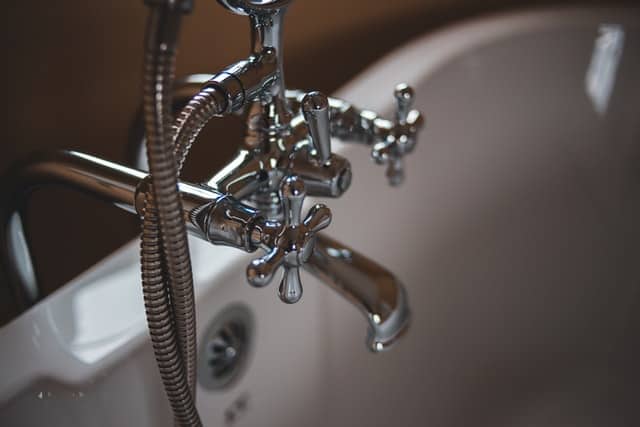The Top Winterizing Strategies: Several Approaches to Secure Pipe Bursts
The Top Winterizing Strategies: Several Approaches to Secure Pipe Bursts
Blog Article
The author is making a few great points regarding Winterizing Your Pipes overall in the content below.

All house owners that reside in temperate climates need to do their ideal to winterize their pipelines. It is something you must do throughout fall before deep winter truly starts. Failing to do so can spell disaster like icy, fractured, or burst pipes. Below are some helpful winterizing hacks to maintain your plumbing system secured even if the climate exterior is terrible.
Try a Hair Clothes Dryer or Warmth Weapon
When your pipelines are almost freezing, your trusty hair clothes dryer or heat gun is a blessing. If the warm towels do not help dislodge any kind of working out ice in your pipes, bowling warm air straight into them may assist. You might end up destructive your pipes while trying to melt the ice.
Open Up Cabinet Doors Hiding Plumbing
When it's chilly outside, it would be useful to open up cupboard doors that are camouflaging your pipelines. Doing this tiny technique can maintain your pipes cozy and also restrict the possibly unsafe results of freezing temperatures.
Take Time to Cover Exposed Pipeline
One nifty and easy hack to heat up freezing pipes is to cover them with warm towels. You can likewise utilize pre-soaked towels in warm water, just don't fail to remember to use protective handwear covers to secure your hands from the heat.
Activate the Faucets
When the temperature declines and it seems as if the icy temperature level will last, it will aid to turn on your water both inside your home and outdoors. This will certainly keep the water streaming with your plumbing systems. You'll end up throwing away gallons of water this way.
Shut down Water When Pipelines are Frozen
Shut off the major water shutoff quickly if you see that your pipes are entirely icy or almost nearing that stage. You will typically find this in your cellar or utility room near the heater or the front wall surface closest to the street. Turn it off right away to stop additional damages.
Don't neglect to close exterior water sources, also, such as your hookup for the yard residence. Doing this will protect against additional water from filling your plumbing system. Unfortunately, with even more water, even more ice will pile up, which will ultimately bring about break pipes. If you are unclear regarding the state of your pipelines this wintertime, it is best to call an expert plumber for an assessment. Taking this positive technique can conserve you thousands of dollars in repairs.
All homeowners that live in temperate environments should do their ideal to winterize their pipes. Failing to do so can spell disaster like frozen, broken, or burst pipes. If the warm towels do not help remove any type of clearing up ice in your pipes, bowling hot air directly into them might help. Turn off the major water shutoff right away if you see that your pipes are totally icy or nearly nearing that phase. With even more water, even more ice will certainly load up, which will eventually lead to burst pipes.
How to Prevent Frozen Pipes This Winter: A Simple Guide
Have you ever dealt with frozen pipes in the winter? If so, you know what a pain they can be. When water freezes, it expands. This expansion puts a huge amount of pressure on your pipes and it can cause pipes to burst, making a huge mess of your home.
If they don’t burst, they may crack. This is a less noticeable problem, but it’s still a big deal. As water leaks, your home will accumulate moisture which leads to mold and mildew.
Do you know how to prevent frozen pipes to protect your home? Let’s talk about it. Keep reading for our brief guide for avoiding frozen pipes.
Keep Cabinet Doors Open
When it gets too cold outside it’s a good idea to leave the cabinet doors in your bathroom and kitchen open.
Why is that?
You want as much heat as possible to get to the pipes. The cabinets are dark and cold and they don’t get any air circulation. This makes the pipes more likely to freeze.
When you let the warm air from the rest of the house circulate around the pipes, it keeps them safe.
Apply Heat Tape and Insulation
It’s a good idea to insulate your pipes during the winter. There are several ways to do this on your own.
You can buy pipe insulators. They’re easy to attach to your pipes and easy to remove when the water gets warmer. They look like thick foam and they keep your pipes warm enough to not burst.
You can also apply heat tape (or insulation tape). These are self-adhesive so they’re easy to place and remove as well.
Know When to Call a Plumber
So what if you’ve already done these things but you’re still unsure if it’s enough? What if your pipes have already cracked or burst?
This is when it’s time to contact a plumbing professional.
They know how to prevent frozen pipes and manage pipes that are already frozen before they pose a problem. In the event of a cracked pipe, they can fix that as well.
https://www.mcwilliamsandson.com/blogs/how-to-prevent-frozen-pipes-this-winter-a-simple-guide

Do you enjoy reading up on Prevent Freezing and Bursting Pipes? Post a short review directly below. We will be glad to see your suggestions about this blog entry. We hope that you visit us again soon. Are you aware of anybody else who is curious about Winterizing Your Pipes? Feel free to promote it. Thank you so much for your time spent reading it.
We're waiting, call! Report this page